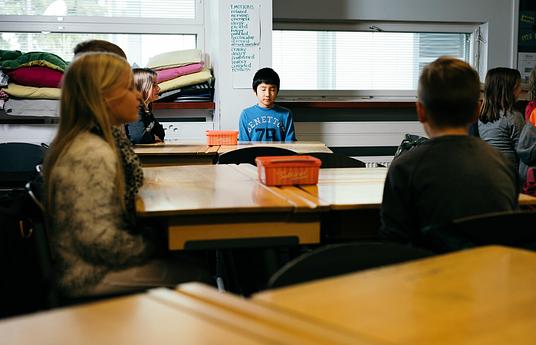School attendance is not the kind of issue you would expect to go viral. Yet Rachel Wright achieved just that when she wrote about why her son won’t be accepting his reward for 100% attendance at school.
As a mother of three boys, one of whom has cerebral palsy, Wright suggests that such awards demonize chronically ill children, saying ‘The messages we are sending to our kids when we reward attendance is wrong for so many reasons – there has to be a better way.’
Attendance is clearly a complex issue. Attempts to combat poor attendance have included rewards and prizes ranging from a certificate to, unbelievably, a Chevrolet! Whereas parents of children who are regularly truant can face prosecution or fines.
For many children full attendance is a luxury they can’t afford. Those coping with chronic illness and disability will likely miss a lot of school due to a combination of pain, sickness, hospital appointments and check ups.
Children who live in complex and difficult home circumstances can lack the support and routine needed for consistent attendance. And students struggling with personal challenges, including social isolation and bullying, could be unwilling or unable to attend school consistently.
That’s not to say we shouldn’t encourage attendance, because of course we should. By missing school, children risk falling behind which means their opportunities in later life may be limited. It’s just we should address the issue in a much more inclusive and holistic way than offering rewards, Me.School is one example of how to do this.
By involving and supporting parents, and embedding Youth Services into the school environment, Me.School ensures a quick and targeted response for students experiencing social exclusion or bullying. The approach highlights the importance of a supportive classroom culture and inspiring extracurricular activities.
We can also provide this support by helping children understand and deal with the emotions they’re experiencing, often due to difficult life circumstances. Kilonpuisto Comprehensive School in Finland is actively seeking to empower students by using tools, such as mindfulness techniques, in order to reduce stress and boost resilience, so students can thrive no matter what life throws at them.
For many children full attendance is a luxury they can’t afford.
"
Similarly, The Haavi Model aims to cut through every part of the school system to bring students greater flexibility and autonomy. The approach is aimed at students who struggle to attend class through fear of going to school, illness, depression and a range of other issues. The model hopes to meet the needs of students and families by building a strong community in close partnership with Social and Health Services, an approach that is more inclusive of students with chronic illness and disabilities.
Put simply, when school is a place students want to be, it seems more likely that they’ll be there. The Well-being School initiative aims to improve schools by giving students the power to identify issues in their school and implement the changes they want to see. With a particular focus on increasing health and wellbeing, this also has the potential to reduce some absences relating to physical and mental health.
Whilst awards and treats can play their part in boosting attendance, it’s crucial to remove barriers to attendance and make school an enjoyable and supportive experience for all. Fewer empty seats means more learning and better life chances, the best reward of them all!



